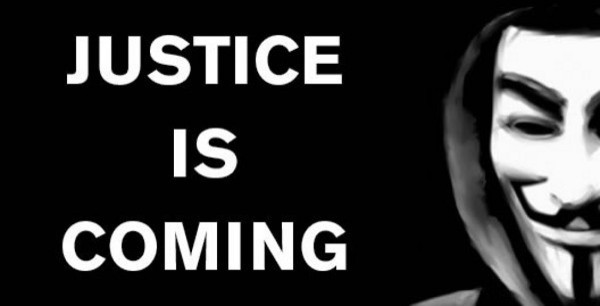Anonymous Hacker Torments Vatican in 2nd Site Attack: 'Luther Once Nailed 95 Theses To The Door'

An Italian member of the hacktivist collective Anonymous targeted the Vatican website for a second time in under week on Tue. March 13, knocking the website offline and penetrating deeper into the city state's server to steal the personal information of multiple Vatican Radio journalists.
Although the Vatican confirmed that they had been hacked, but claimed that much of the information the hacktivist gathered was useless.
There was a second attack we are aware of directed against the [Vatican IP] address, said a Vatican spokesman today. [Concerning] Vatican Radio, a database on an old server was accessed. Thirty percent of the information on the server was so outdated it was of no use.
This did not seem to bother the hacker, who goes by the Twitter handle @agentanonhacker, and dumped the stolen information in a Pastebin message board along with a message explaining his motives and actions, and warning that the Vatican's online security may not be as safe as they believe.
The rogue hacktivist, claiming loose affiliation with Anonymous, stated they were working along.
I take full responsibility for the hack and I don't have a team, they wrote in a message to the international Business Times on Twitter. I'm going lone wolf for now. I'm a battleship within Anonymous.
The fact that one individual hacker is claiming responsibility for the attack is a steep departure from Anonymous's practice of maintaining a leaderless structure in which no one member takes credit for any action, regardless of whether or not they carried it out on their own.
Unlike the first hack, which appeared to be a Distributed Denial of Service (DDoS) attack typical to Anonymous, the second one did more than just knock the website temporarily offline, instead succeeding in gathering information. This attack was only possible because of a back door Anonymous created during the first hack last week.
During the first attack Anonymous stated they were attacking the Vatican, and not individual Christians, noting that they're problem is with the Vatican's stance on birth control and abortion, as well as their history of crimes against humanity.
The second wave of cyber-attacks also accused the Vatican of modern and historical crimes worse than those committed by the church of Scientology, a popular target of Anonymous hacktivism in the past.
This theocracy needs to ... enter the real world with modern ideals or fall behind and become part of history, @agentanonhacker added.
The hacker claims her warned the Vatican of the impending cyber-attack via Twitter, and listed his demands (formal apologies for a number of crimes against humanity which are listed in the Pastebin message), which was ignored.
The message equates the Vatican and Catholic Church to a mafia organization that launders money, tortures scientists, murders doctors and molests children, joking the Vatican is essentially a massive criminal gang that serves free wine on Sundays.
Martin Luther once nailed 95 theses to the door of a church which lead to a small revolution within the church, the hacker continued. Consider this act like nailing my list of theses to the door of a church.
The message on Pastebin also included the personal data of journalists at Vatican Radio, which has been accused of spreading its signal with cancer-causing airwaves. This claim comes from a 2010 report by the National Cancer Institute in the Rome suburb of Cesano, where Vatican Radio transmitters are located. After the report was complete Italy's Supreme Court ordered the church to pay damages to the local citizens when an outbreak of leukemia in the area was linked to the radio transmitters.
Many citizens who unluckily live close to your antennas have sued the Vatican because of their bad health conditions, reads a statement released by the hacker in Italian. Anonymous cannot tolerate that these crimes are being unpunished.
We would like to see some commitment on your behalf on this matter, perhaps changing the location and the power of emissions of your antennas, the statement continues.
Anonymous previously attempted to hack the Vatican website in 2011, but failed. Instead they focused their energy at the time on the website of 2011 World Youth Day, a massive Catholic youth festival taking place in Spain. They managed to keep the festival's website offline for a large portion of the first day of the festival Aug. 18.
© Copyright IBTimes 2024. All rights reserved.



















